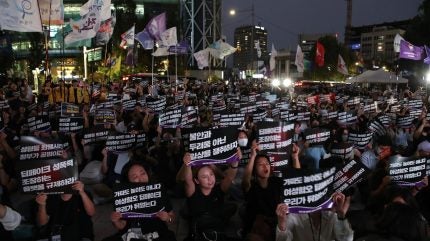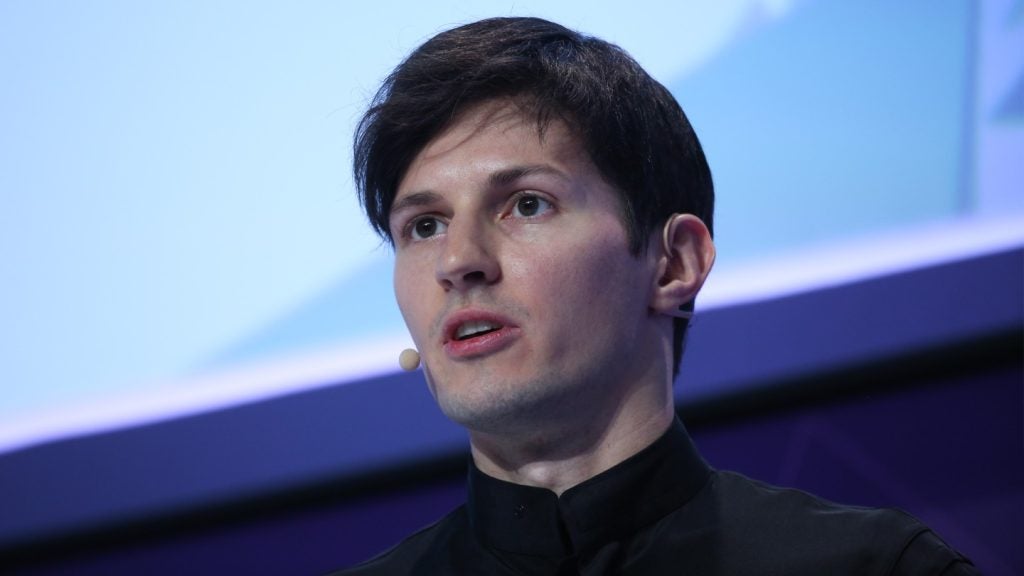
South Korea has removed all intranet images of military and defence ministry officials in a bid to prevent deepfake porn, which is reportedly flooding the controversial social media platform Telegram.
Republic of Korea (ROK) Armed Forces officials said all ID photos have been made invisible on the military’s Onnara System intranet, the Korea Times reported.
Artificial intelligence (AI) has increased the online prominence of deepfakes, which combine a real person’s face with a fake, sexualised body.
“There was the possibility of the photos being abused for sex crimes because individual photos can be accessed and downloaded,” an ROK official said. “It is not known whether the intranet photos were abused for deepfakes, but we made them unavailable to prevent that.”
Previous investigations show ROK military intranet photos have been abused for deepfakes.
A Telegram channel active since 8 August has targeted at least 30 victims from the South Korean army, navy and air force with deepfake nude images, the Hankyoreh reported.
The 850 channel members send in the names of Korean military servicewomen, their ages, ranks, telephone numbers, Instagram handles and photos of them in uniform, and others then create deepfake photos. The pornographic imagery often goes hand in hand with sexually objectifying and degrading comments.
Only military officials and non-commissioned officers can access this information through the ROK Armed Forces’ intranet. As these Telegram channels are frequently deleted and recreated, the number of deepfake victims may be far higher.
South Korea battles deepfake porn “national emergency”
The ROK Armed Forces’ announcement comes days after reports emerged that students from South Korean universities, high schools and middle schools face systematic targeting with deepfakes. Many are believed to be aged under 16, South Korea’s age of consent.
More than 500 Korean schools and universities had been identified as targets, the BBC reported last week. Many perpetrators are suspected to be teenagers themselves.
The Seoul National Police Agency announced it had opened a probe into Telegram last Monday (2 September), following a directive from South Korean President Yoon Suk Yeol.

Park Ji-hyun, a women’s rights activist and former interim leader of South Korea’s main opposition party, said the government needed to declare a “national emergency” in response to the country’s sexual crime epidemic.
Between 2018 and 2020, dozens of young Korean women were blackmailed into performing sexual acts through the threat of exploitative porn videos in the so-called ‘Nth Room’ scandal, a sex abuse ring again perpetrated through Telegram.
Telegram’s controversies continue
South Korea’s probe is the latest development in a series of scandals for the deregulated messaging app Telegram.
On 24 August, Telegram’s CEO and co-founder Pavel Durov was arrested in France, where he faces criminal charges including failure to prevent illegal activity, namely transactions by organised gangs, refusal to communicate with authorities and complicity in the organised criminal distribution of child sexual abuse images.
Telegram has also come under fire for facilitating weapons sales by US-sanctioned, Houthi-linked arms dealers in Yemen.
“Moderators proactively monitor public parts of the platform, use sophisticated AI tools and accept user reports in order to remove millions of pieces of harmful content each day that breach Telegram’s terms of service,” Telegram spokesperson Remi Vaughn tells Army Technology.
The platform was founded by Durov in Russia in 2013 but is now based in Dubai. It is built on a model of ‘complete free speech’ and minimal moderation – immensely useful for pro-democracy movements under authoritarian regimes in, for example, Iran, Belarus or China.
It also makes Telegram a hotspot for misinformation. Far-right figures in the UK made prominent use of the platform to spread racist rhetoric and disinformation during recent riots.



